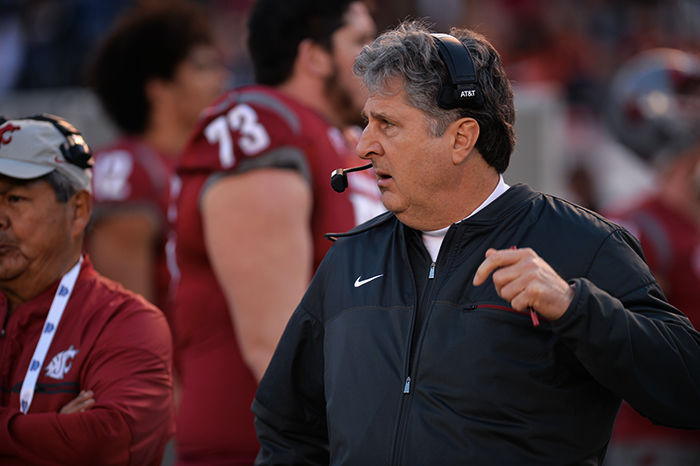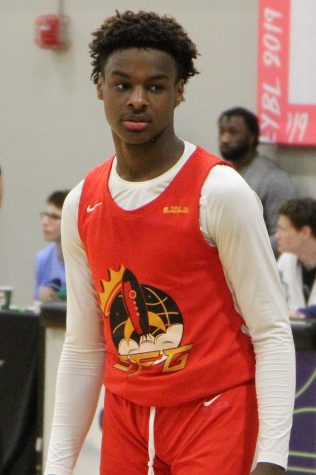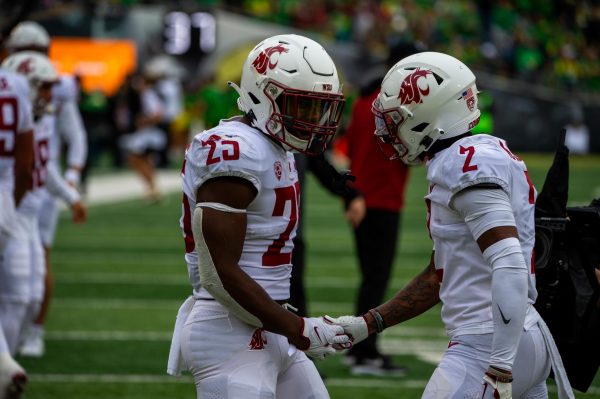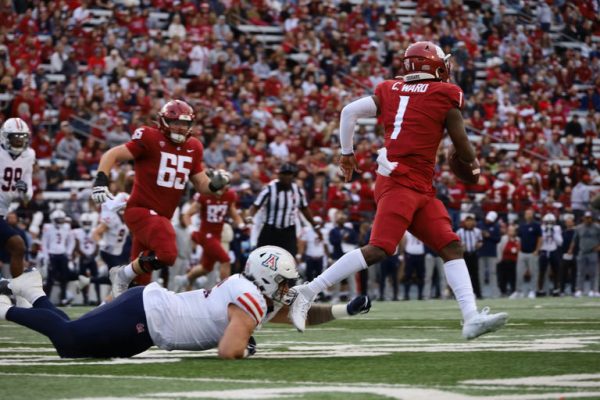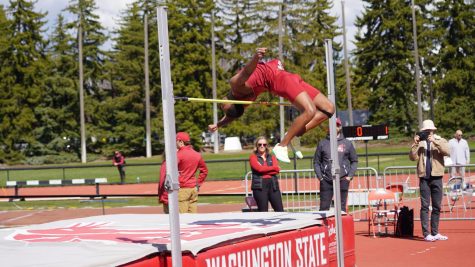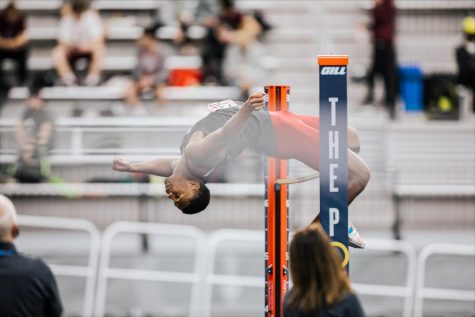WSU football is not at a recruiting disadvantage
February 16, 2017
Membership in a Power Five conference is a huge privilege for any participating college athletic department.
The Power Five consists of the Atlantic Coast Conference, Big-12, Big Ten, Pac-12 and Southeastern Conference. Member schools are expected to flaunt the best overall athletic departments and sustain considerable funding for their national media platforms.
Looking at a map, the majority of the Power Five schools reside in the more densely populated regions of the East Coast. Conversely, the Pac-12 is the only conference to represent the western half of the U.S.
The West Coast is comprised of more of an open range, agriculturally-driven population outside of the majority of the Pac-12. Contrary to the perception that there is an imbalance of Power Five schools coast-to-coast, the playing field in recruiting and booster-ism is relatively level across the board.
WSU fits the bill for an academic institution principally rooted in an agrarian community with a smaller student enrollment. In reality, WSU’s total enrollment figure and topography make it seem more fitting for the Big Sky or Mountain West conferences as opposed to the Pac-12, a conference featuring the mass media markets of Seattle, Los Angeles and Salt Lake City.
However, being tucked behind a valley of hills in a college-town-atmosphere is not a burden. Rather, Pullman’s geographic location provides WSU with recruiting advantages not present within a majority of the Power Five athletic departments.
Offering a unique lifestyle and university culture to its student-athletes, WSU is separate from the “Pac.”
Football, universally, is the moneymaking sport for a college athletic department. Pullman’s blue-collar, farming-based community breeds American football, making the WSU football program in itself an intriguing destination for recruits.
“In the Pac-12 Conference, there are only two true college towns, Pullman and Corvallis, and recruits love to see the community involvement in WSU Athletics,” said Dave Emerick, WSU football chief of staff and recruiting coordinator.
WSU football has a long history of fielding some of the nation’s best teams and generating nationally-recognized recruiting classes.
WSU’s glory days date as far back as the mid-1970’s with star quarterback Jack Thompson, who was drafted third overall in the 1979 NFL Draft by the Cincinnati Bengals. Then, in the 1980s, WSU recruited a host of standout players, including eventual Super Bowl-winning quarterback Mark Rypien and first-team All-American lineman Mike Utley.
After former WSU Head Coach Dennis Erickson left for the University of Miami in 1989, the Cougars hired Mike Price, who coached the Cougs through the 2002 season before leaving for the same position at the University of Alabama. Price recruited some of WSU’s most iconic players, namely former NFL quarterbacks Drew Bledsoe, Ryan Leaf and Jason Gesser, safety Steve Gleason, defensive tackle Rien Long and cornerback Marcus Trufant.
The point being, recruiting on the Palouse must not be taken on the surface level as a disadvantage. History has proven that Rose Bowl appearances are not alien to WSU and are a byproduct of a fundamental recruiting platform and culture.
After Price left, WSU returned to a lull, trying to regain identity or perhaps forge a new one completely. When former WSU President Elson Floyd hired former University of Oregon Athletic Director Bill Moos to the same position in 2010, the dominoes fell in place to clean up the pigsty that was the WSU football program after Paul Wulff’s tenure.
The ball was in Moos’ court to replicate his success in Eugene in Pullman. Moos made his key move in 2012, hiring air raid guru Mike Leach to be the program’s next head coach. The results were far from instantaneous, but it was clear that the future was transparent, as Leach instituted a system he was confident would work.
“Coach Leach is the leader of this problem (recruiting to the Palouse),” Emerick said. “He has such a big name, he has had so much success over the years, and he has such an interesting personality that recruits love to talk with him.”
In 2013, the Cougars returned to the postseason for the first time in a decade with a New Mexico Bowl appearance. WSU has played in back-to-back bowl games the last two seasons under Leach, winning one and losing the other.
Since Leach’s arrival, the Cougars have hovered around 50th nationally in recruiting rankings, according to scout.com. On Feb. 1, Leach reeled in the most highly-regarded recruiting class of his five-year tenure, posting the 38th-best recruiting class, according to scout.com.
Now that WSU has solidified itself back into the annual postseason discussion, the current focus is no longer on simply qualifying for a bowl game, but rather contending for Pac-12 Championships. At Texas Tech and now at WSU, Leach has proven himself as a change agent in rebuilding a football culture through stable recruiting.
“We are able to sell our recent success, three bowl games in last four years, 13-5 Pac-12 record last two years, and show recruits that WSU is a program on the rise,” Emerick said.
With spring workouts starting on March 23, both the program’s history and Leach’s track record indicate that the football team may take another step forward out on the Palouse.


